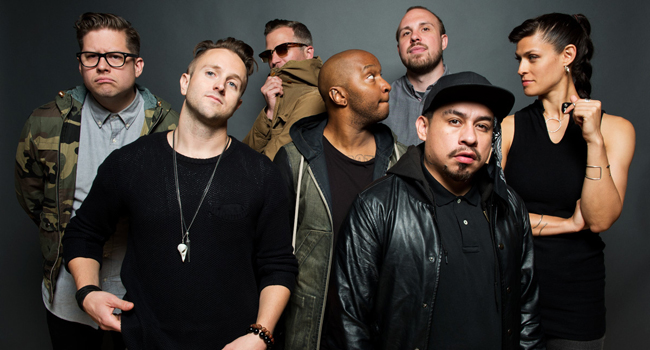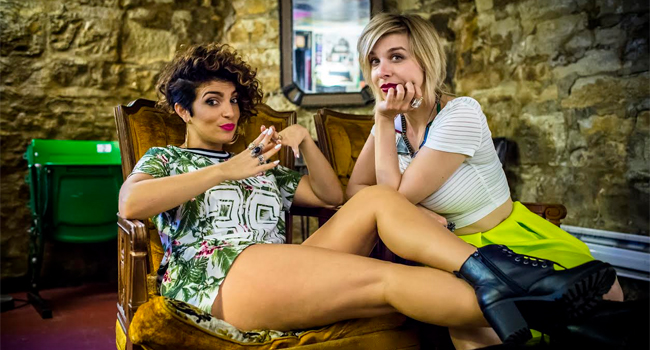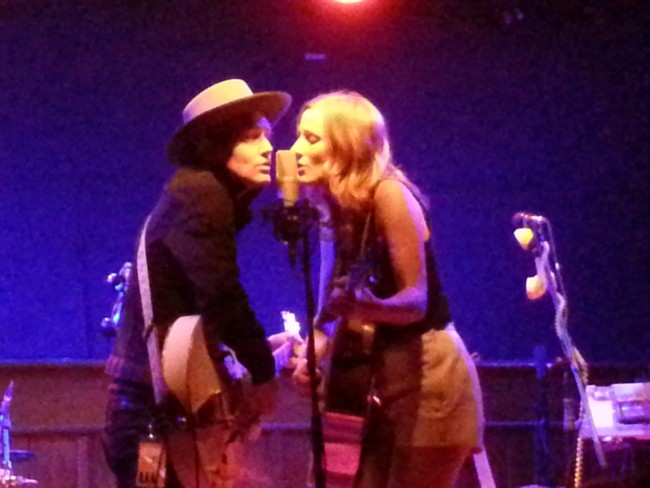Stuart McLamb’s solo project, The Love Language, carries a recognizable flair for lush vocals, charming melodies and empathetic sing-alongs that would make Conor Oberst swoon.
Despite TLL’s signature sound, this Raleigh, N.C.-based act has evolved exponentially since its 2009 self-titled debut that McLamb started as more of a breakup catharsis than the beginning of an intended long-term project. After catching the attention of Merge Records and releasing the ’60s-inspired daytripper Libraries in 2010, McLamb & Co. return with Ruby Red, which couldn’t be mistaken as the first two albums—and hardly sounds like a breakup record.
Pop ’stache: Where are you calling from?
Stuart McLamb: I’m calling from Chapel Hill, North Carolina. I live in Chapel Hill now, but I lived in Raleigh when we made the record. I like to bounce around the state like a pinball. [Laughs.]
P ’s: It’s been three years between Libraries and Ruby Red, which is two years longer than between the release of your self-titled and Libraries—what have you been up to?
SM: We toured Libraries, and when that winded down we started to work on the next. The biggest part of what could be perceived as sort of a delay, was there was more of an expectation to release an album every year or something. That was mostly due to the initial sessions that we had tracked. When we finished it and we were almost ready, we realized it wasn’t the best we could do. We needed to rethink a couple things. I decided I’d rather put the time into doing the record right instead of turning something out just to do it, you know?
P ’s: Was it mainly you with the songwriting and deciding which material to keep and which to scrap, or was it also members of the band?
SM: It’s mostly me. There wasn’t really a “band” with this record. There were a lot of people involved, but it wasn’t a record made by a band, per se. Love Language started as sort of a solo recording project. People come in and out—a lot are stoked to record and tour, and some record and then move on to other projects.
P ’s: As you alluded, you added so much more to this record, more than possibly in previous projects. And it sounds much more rounded than its predecessors.
SM: We were hoping to expand what the sound of this band could be, and we’re still not there. With the first record I felt like we were assigned a sort of identity by journalists and music writers that the story was me dealing with a breakup by writing these songs. When it started I wasn’t trying to start a profession for myself. Then, with some of the songs that came out of Libraries, I’d decided if we’re called The Love Language, these are love songs.
That’s when I realized I’d like rather than for this to be a project about me and my romantic strife. I’d like for it to be a project that can go along with me throughout my life.
This is a record that I wanted to get away from the idea of ’60s-esque romantic. And, that’s not to say that sound can’t come back and I don’t like it, but it’s gotta come from a true place. At the moment I wanted to try other things. And there are other themes on Ruby Red and a lot of different sounds I wanted to try that are a lot heavier. As much as just wanting to expand it, I feel like this record is almost like a mixed tape. It’s not cohesive at all, but it was kind of the point for me.
P ’s: Absolutely, Ruby Red has a much different sound from Libraries, and it uses a lot of different moods.
SM: There were some orchestrated songs on Libraries, but Ruby Red was definitely a lot more orchestrated. When I was doing the demos, I kept adding on and I’d think, “The strings sound awesome on this,” and I’d be worried about how we’d take the sound on tour, but I just decided I’d worry about it later. So, a lot of that was me getting string-crazy. [Laughs.]
P ’s: And how has the tour been this summer?
SM: It’s been awesome. We’ve been back for a couple weeks now. We just did about eight shows up the East Coast. It was great to get back out there. After a bit, you get worried: “God, have I been away too long?” But instead, tons of people came out and there’s been great reception. The band did great—it’s a really solid crew. Most of them are touring these next few weeks. My brother Jordan [McLamb] is coming on this next tour; Eddie Sanchez from Fin Fang Foom and Solar Halos was on bass. My buddy Tom Simpson was on drums, Andy Holmes was on guitar and Autumn Ehinger was on keyboards—a really solid crew.
P ’s: Besides the show at Schubas here in Chicago on the 29th, what’s next for The Love Language?
SM: We’re going on a national tour; we’re still working getting over to Europe. We still haven’t been over there, so that’s on our list. When we get back, to be honest, everything’s a little up in air, as far as living—to get back to the beginning of our conversation. Me and Tom are going to be free-roamin’. The idea is that we’ll come back and build a studio in a little town or out in the country—that’s one option. We’re also leaving the door open to fall in love with another city while we’re touring. We might be open to a big move.



